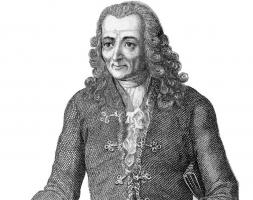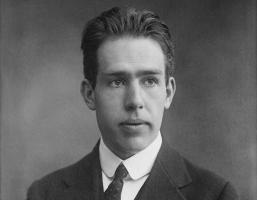Jürgen Habermas: biography of this German philosopher
Jürgen Habermas is one of the best known and most influential living philosophers. He is the main representative of the second generation of the Frankfurt School and his life is characterized by being critical of society, delving into advanced capitalism.
His thoughts about how language is a fundamental tool in the construction and maintenance of society, especially enhanced by the idea of public opinion, is one of the most relevant in the field of philosophy of language.
Next we will see in depth the life of this philosopher through a biography of Jurgen Habermas in which we will know his trajectory, his works, prizes that he has won and thought.
- Related article: "Karl Marx: biography of this philosopher and sociologist"
Brief biography of Jurgen Habermas
Next we are going to take a closer look at the life of this great thinker, who despite his advanced age At present he is still very active in philosophical circles and media specialized in the ambit.
early years
Jürgen Habermas was born in Düsseldorf, Germany, on June 18, 1929.
in the bosom of a Protestant family. His grandfather was the director of the seminary in Gummersbach, the town where the family lived. His father, Ernst Habermas, was executive director of the Cologne Chamber of Industry and Commerce and, according to Jürgen himself, was a Nazi sympathizer. He would continue to reside in Gummersbach until graduating from the gymnasium (German high school).His childhood was hard, since from birth he had to deal with having a cleft palate, which made it difficult for him to speak, which is why the other children showed rejection. Although he received corrective surgery on two occasions, this defect would mark him, making him reflect on the importance of communication from a very young age. Besides this, in his childhood and adolescence he would witness the social changes in Germany, times in which the Nazi party would take control of German society.
University education and Frankfurt School
But the hard times passed and, after World War II, Habermas was able to study at the universities of Göttingen (1949-1950), Zürich (1950-1951) and Bonn (1951-1954). In all of them he would learn about history, psychology, German literature, economics and philosophy, obtaining a doctorate in the latter discipline in 1954. He would present his dissertation “Das Absolute und die Geschichte. Von der Zwiespältigkeit in Schellings Denken” (The Absolute and history: On the discrepancies in Schelling's thought).
In 1953 he published his first article, a critique of Heidegger's "Introduction to Metaphysics", which he titled "Mit Heidegger gegen Heidegger denken” (Thinking with Heidegger against Heidegger), being especially harsh against Heidegger's position on the nationalism. During the following years he would also publish other newspaper articles.
in 1955 he was invited by Theodor Adorno to be part of the reopened Institute for Social Research in Frankfurt. There he would come into contact with empirical social research, reorienting his studies towards a critical theory of society and rubbing shoulders with the Frankfurt School.
From then until 1959 he was Adorno's assistant and, with the passage of time, he would become the main representative of the second generation of the Frankfurt School, and becoming a prominent figure in "critical theory", a philosophical current defended by this school. This current would fascinate the youth of the student movements of the sixties.
Years of teaching
Between 1964 and 1971 he worked as a professor at the University of Frankfurt, and it would be in that period, specifically in the 1968 that he would achieve great interest and international projection thanks to the publication of his book "Knowledge and interest"
After his professorship in Frankfurt he served as professor of philosophy at Heidelberg. Between the years 1971 and 1980 he was director of the Max Planck Institute in Stamberg. In 1983 he obtained the chair of Philosophy and Sociology at the Goethe University of Frankfurt., university in which he would remain until his retirement in 1994 and going on to be recognized as an emeritus professor.
To this day he is still very active as a teacher, since he has the title of "Permanent Visiting Professor" in Northwestern University (Evanston, Illinois) and Theodor Heuss Professor at The New School (New York). He is also granted numerous interviews and, Even though he has just turned 91, he does not stop intervening on numerous aspects of the philosophy of the 21st century..
Acknowledgments
In 1986 he received the Gottfried Wilhelm Leibniz Prize from the Deutsche Forschungsgemeinschaft, the highest distinction offered on German soil for research. In 2001 he received the prestigious German Booksellers Peace Prize and, in 2003, he had the honor of receiving the Prince of Asturias Award for Social Sciences. Later he received the Holberg Prize for his contributions to philosophy and sociology.
He is doctor honoris causa at various universities internationally, including Jerusalem, Buenos Aires, Hamburg, Northwestern University Evanston, Utrecht, Tel Aviv, Athens, and the New School for Social Research in New York. In addition, he has the privilege of being a member of the German Academy of Language and Poetry.
- You may be interested in: "How are Psychology and Philosophy alike?"
His work
The main works published by Jürgen Habermas are: History and criticism of public opinion (1962), Theory and practice (1963), The logic of the social sciences (1967) knowledge and interest (1968), Science and technology as an ideology (1968), Culture and criticism (1973), The crisis of rationality in evolved capitalism (1973), The reconstruction of historical materialism (1976), Theory of Communicative Action (1981), moral concience and comunicative acction (1983) and The philosophical discourse of modernity (1985).
Philosophical thought
Habermas' thought is heir to the "dialectic of Enlightenment" of Theodor W. Adorno and Max Horkheimer, with whom he shared a philosophical and sociological project of a moral reflection on the development of advanced capitalism. Habermas proposed an unorthodox Marxism, which abandons the idea of an organization exclusively productivist of society and that, in his opinion, would be the cause behind the impoverishment of the sphere vital.
Although it would be found within the Critical Theory of the Frankfurt School, his work adopts divergent profiles from those of his teachers. Habermas tries to recover the contact between the theoretical and the practical, facing the supposed neutrality of scientific knowledge, so mistakenly always seen as undoubtedly positive and synonymous with progress. According to the philosopher, an objectivity alien to values and interests is not possible, since they are based on a merely instrumental reason.
The thought of Immanuel Kant and Karl Marx play a prominent role in his work. One of the characteristics of Kant's thought is to see that there is a close link between the philosophy of reason, very ambitious in normative terms, and an empirical theory of society. Even so, he will make an important criticism of Karl Marx, who, in his opinion, reduces human praxis to a techne, in the sense that Marx grants a fundamental importance to work as the axis of society, ignoring a fundamental aspect for Habermas: the interaction mediated by the language.
For Habermas and in contrast to Marx, social change must take place in a symbolic sphere., in the field of communication and understanding between subjects. For Habermas there have been three crises: the crisis of theologically or metaphysically based philosophies, the crisis of the legitimacy of the contemporary State and the crisis of legal positivism. To overcome them, he proposes the theory of communicative action, with Kant's own foundations, in which he proposes not to impose a law, but to propose a theory of universal aspiration.
Although Habermas makes use of the philosophical concept of reason, using it explicitly in terms of the philosophy of language, he does so in order to develop a social theory. His first great work History and criticism of public opinion (1962) ago an analysis of the structural transformation of the public sphere, criticizing the idea of public opinion and recovering a democratic vision of that concept. He tries to make a distinction between manipulated public opinion and critical public opinion.
It must be said that Habermas has been very often misunderstood in Germany. To make matters worse, some of his positions were claimed and exaggerated by extremist movements, being a For example, the case of the "Red Army Group" which was inspired, in part, by the social criticism carried out by Habermas. Ironically, since 1967 Habermas has been denouncing on numerous occasions what he called fascism. of the left, that is, supposedly social movements and supporters of progress but with an air of fascistoid.
In 1968 he made a critique of positivism and its technique in Science and technology as an ideology, in which he raised a series of questions about the possible forms of coexistence between advanced industrial societies and democratic regimes. His critical approach had, as its main objective, to remember that freedom and justice are the indisputable pillars of common democratic values.
Bibliographic references:
- Habermas, J. (1962): History and critique of public opinion. Gustavo Gili, Barcelona, 1981. ISBN 978-84-252-2015-9
- Habermas, J. (1963): Theory and practice; Theory and praxis. Studies in social philosophy. Tecnos, Madrid, 1987. ISBN 978-84-309-1423-4
- Habermas, J. (1967): The logic of the social sciences. Tecnos, Madrid. ISBN 978-84-309-4522-1
- Habermas, J.(1968): Knowledge and interest. Taurus, Madrid, 1981. ISBN 978-84-306-1163-8
- Habermas, J. (1968): Science and technique as ideology. Tecnos, Madrid, 1984. ISBN 978-84-309-4520-79
- Habermas, J. (1971): Philosophical-political profiles. Taurus, Madrid, 1984. ISBN 84-306-1249-1
- Habermas, J. (1973): Legitimation problems in late capitalism. Amorrortu, Buenos Aires, 1975. ISBN 978-84-376-1753-4.



